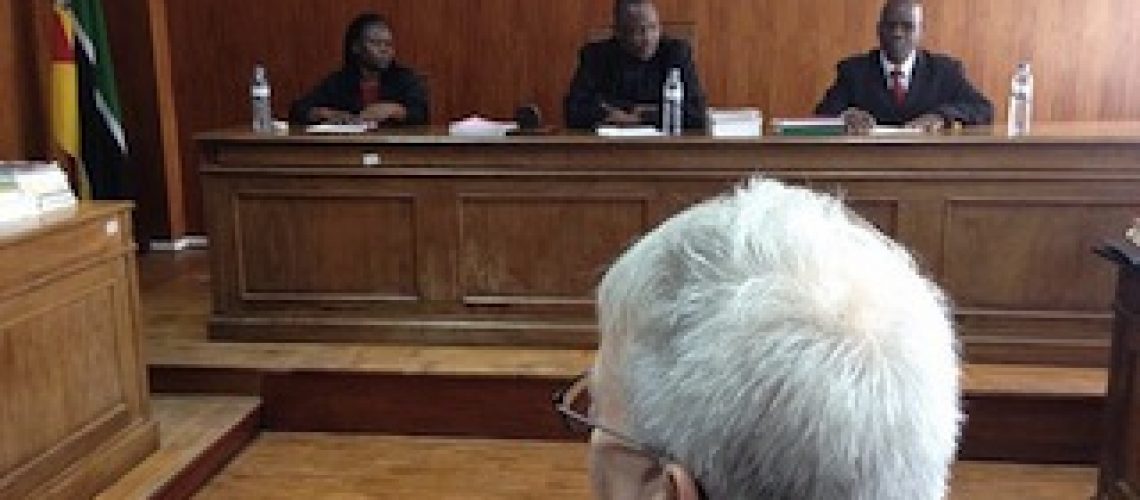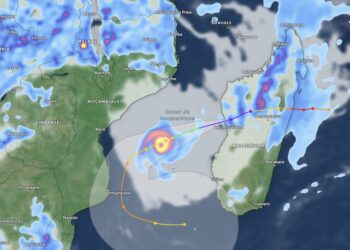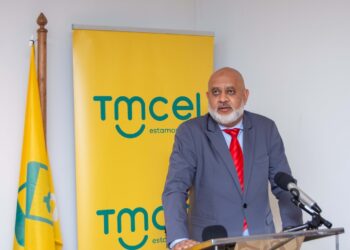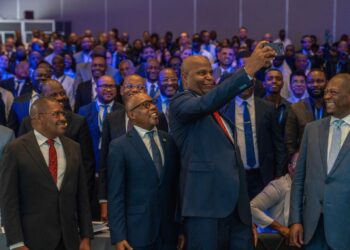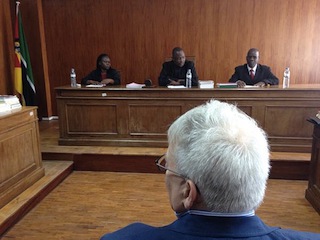 Freedom of expression and of the press in Mozambique is on the bench of the accused when the trial of citizen Carlos Nuno Castel Branco, Mediafax editor Fernando Mbanze, and Canal de Mocambique editor Fernando Veloso begins today, after the state of Mozambique started legal proceedings against them. If the first action by the judge is not to shelve the case, a serious precedent will be created to ensure that the voices of Mozambican citizens are silenced.
Freedom of expression and of the press in Mozambique is on the bench of the accused when the trial of citizen Carlos Nuno Castel Branco, Mediafax editor Fernando Mbanze, and Canal de Mocambique editor Fernando Veloso begins today, after the state of Mozambique started legal proceedings against them. If the first action by the judge is not to shelve the case, a serious precedent will be created to ensure that the voices of Mozambican citizens are silenced.
The post that Castel Branco placed on his Facebook page on 4 November 2013, criticizing then President Armando Emilio Guebuza’s government, began as follows: “Mr President: you are out of control. After wasting an entire term of office inventing insults against anyone with ideas to tackle national problems; instead of creating opportunities to bene! fit from the experience and knowledge of those people, you now blame the media for the political crisis…”
In his lengthy post to his friends on Facebook, but which ended up being published by Mediafax, Canal de Mocambique, and @ Verdade newspapers, Castel Branco wondered: “Who insulted, and continues to insult, those citizens that point out problems and solutions because they want a better life for all (they might even be wrong but they honestly seek a better life for all)? Who accuses the poor of being lazy and of not wanting to stop being poor? Who describes Mozambicans as marvellous people at the beginning and end of his speeches but insults, and shows contempt for them, in between? Who picked the path of war and is nurturing that war, even against the will of those marvellous people?”
In the wake of the dissemination of Castel Branco’s views – he is a well known economist at home and abroad – , the Attorney General’s Office, acting on behalf of the state ! of Mozambique and not of citizen Armando Emilio Guebuza, it started legal proceedings in which it accuses Carlos Nuno Castel Branco of slandering the former president of the Republic, and the above mentioned editors of freedom of the press misuse. The trial is scheduled to begin today.
In May 2014, after a hearing at Distrito Um [District One] Judicial Court, Castel Branco said that he did not regret sharing with his Facebook friends his critical views of President Guebuza and his government.
He wondered: “How can I regret it if the post was meant to prompt discussion of things that I see as serious in this country. Thus, I have the right to hold those views and to regard those matters as serious?”
Mediafax Editor Fernando Mbanze similarly pointed out that he did not regret publishing Castel Branco’s post, as he felt it was in the public interest, adding that the idea was to expand debate on Facebook. He told the Savana publication that “we have opened space for discussing views. We see no situation of freedom of the press mi! suse, and we hope that justice will be done.”
“The focus of the struggle must be the rights enshrined in the Constitution”
Meanwhile, a number of Mozambican journalists have made public their belief that the above mentioned trial is in breach of the Constitution. Journalist and journalist [Higher Mass Media Council, CSCS Chairman] Tomas Vieira Mario pointed out that “Article 73 of the Constitution of the Republic of Mozambique provides for the right for political participation by citizens, and that participation necessarily implies the emission of political opinion and criticism.” He wondered: “How can you be exercising a right and committing a crime at the same time?”
In an opinion letter disseminated in July, Castel Branco made it clear that although he, Mbanze and Veloso have no desire to go to jail, what is at stake is the trial of the freedoms entrenched in the Mozambican Constitution. He wrote: “Our acquittal should be one of the main results i! n personal terms and in terms of justice. However, the struggle must be over the issues at stake, for which we fight every day. Thus, the focus of the struggle must be the rights enshrined in the Constitution in respect of freedom of expression, freedom of the press, freedom of scientific research, freedom of political debate and, in short, the right for the exercise of citizenship by each citizen.”
Given that Mozambique continues to be one of the most corrupt countries in the world; that criminal details relating to the Mozambique Tuna Fishing Company (EMATUM) are becoming known; that public servants continue to get rich by illegal means; and that thousands of Mozambicans remain illegally behind bars without the right to trial, it is paradoxical that the Attorney General’s Office’s priority is to try a citizen who conveyed his opinion about a public servant, which is what the president of the Republic is.

